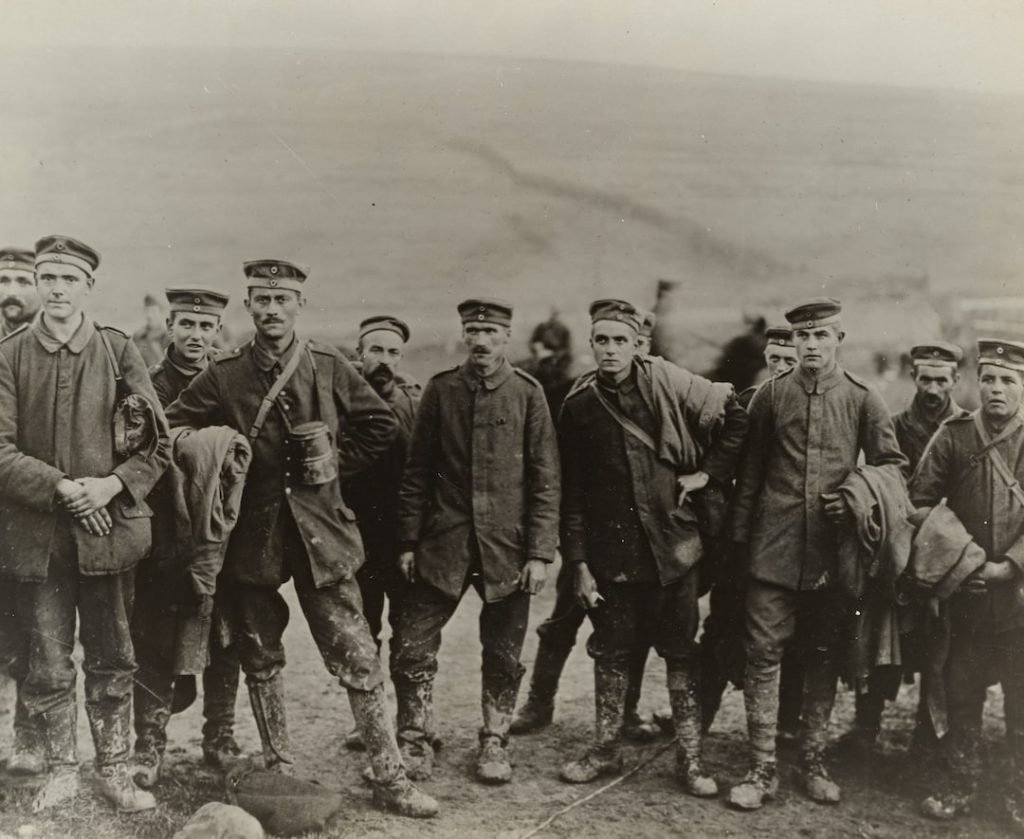

Learning Languages: Vocabulary for Studying German
Learning vocabulary is an essential part of studying any language, and German is no exception. Vocabulary forms the building blocks of a language, allowing learners to understand and communicate effectively. By expanding your German vocabulary, you will be able to express yourself more fluently, understand written and spoken texts better, and engage in meaningful conversations with native speakers.
There are numerous benefits to learning German vocabulary. Firstly, it enhances your overall language skills. As you acquire new words and phrases, you will be able to construct more complex sentences and express your thoughts more precisely. Additionally, a rich vocabulary allows you to comprehend a wider range of texts, such as books, articles, and movies, which in turn deepens your understanding of the German culture and society.
Moreover, learning German vocabulary opens up opportunities for personal and professional growth. Whether you plan to travel to Germany, pursue higher education in a German-speaking country, or work in a German-speaking environment, having a strong vocabulary will greatly enhance your experiences and interactions.
Table of Contents
ToggleBasic German Vocabulary for Beginners
For beginners, it is important to start with the basics of German vocabulary. This includes common words and phrases that are used in everyday conversations. Greetings such as “Guten Morgen” (Good morning), “Guten Tag” (Good day), and “Auf Wiedersehen” (Goodbye) are essential for initiating and ending conversations politely.
Numbers are also crucial for basic communication. Learning numbers from one to ten is a good starting point, as they are used frequently in various contexts. Colors are another important category of vocabulary for beginners. Knowing basic colors like “rot” (red), “blau” (blue), and “gelb” (yellow) allows you to describe objects and express preferences.
Family-related vocabulary is also useful for beginners. Words like “Mutter” (mother), “Vater” (father), “Schwester” (sister), and “Bruder” (brother) enable you to talk about your family members and understand conversations about family relationships.
Advanced German Vocabulary for Intermediate Learners
Once you have mastered the basics, it is time to expand your German vocabulary to more advanced topics. Daily routine vocabulary is essential for describing your activities and understanding others’ schedules. Words like “aufstehen” (to get up), “frühstücken” (to have breakfast), and “arbeiten” (to work) allow you to talk about your daily activities.
Hobbies and interests are another important category of vocabulary for intermediate learners. Learning words related to hobbies such as “lesen” (to read), “malen” (to paint), and “musizieren” (to play music) enables you to discuss your interests and engage in conversations about leisure activities.
German idioms and expressions are also worth exploring at this stage. These phrases add depth and authenticity to your language skills, allowing you to sound more like a native speaker. Examples of German idioms include “Das ist nicht mein Bier” (That’s not my problem) and “Da liegt der Hund begraben” (That’s the crux of the matter).
Business German Vocabulary for Professionals
For professionals looking to use German in a business context, learning business-related vocabulary is crucial. This includes words and phrases related to business meetings, negotiations, and presentations. Knowing terms like “Besprechung” (meeting), “Verhandlung” (negotiation), and “Präsentation” (presentation) allows you to navigate professional settings confidently.
Understanding German business etiquette is also important. Germans value punctuality, so knowing phrases like “pünktlich sein” (to be on time) and “Termin einhalten” (to keep an appointment) is essential. Additionally, addressing colleagues and superiors with appropriate titles, such as “Herr” (Mr.) or “Frau” (Mrs.), shows respect and professionalism.
German Vocabulary for Travelers
If you plan to travel to Germany or any German-speaking country, learning travel-related vocabulary is essential for a smooth and enjoyable trip. This includes words and phrases for ordering food, asking for directions, and booking accommodations.
In restaurants, knowing phrases like “Ich hätte gerne…” (I would like…) and “Die Rechnung, bitte” (The bill, please) allows you to order food and pay the bill without any confusion. When asking for directions, words like “links” (left), “rechts” (right), and “geradeaus” (straight ahead) are useful for understanding and giving directions.
Booking accommodations requires vocabulary related to hotels and reservations. Words like “Zimmer” (room), “Reservierung” (reservation), and “Einzelzimmer” (single room) enable you to communicate your preferences and make arrangements with hotel staff.
German Vocabulary for Food and Drink

German cuisine is known for its hearty dishes and unique flavors. Learning vocabulary related to food and drink allows you to explore the culinary delights of Germany. Words like “Wurst” (sausage), “Sauerkraut” (fermented cabbage), and “Brezel” (pretzel) are essential for understanding menus and ordering food in restaurants.
German words for different types of drinks are also important. Whether you prefer “Bier” (beer), “Wein” (wine), or “Kaffee” (coffee), knowing the names of beverages allows you to order your favorite drink with confidence.
German Vocabulary for Fashion and Shopping
Germany is known for its fashion industry, making it a great destination for shopping enthusiasts. Learning vocabulary related to fashion and shopping allows you to navigate stores and express your preferences. Words for clothing items like “Hose” (pants), “Kleid” (dress), and “Schuhe” (shoes) enable you to describe what you are looking for and understand the options available.
Accessories are also an important part of fashion vocabulary. Words like “Tasche” (bag), “Schmuck” (jewelry), and “Sonnenbrille” (sunglasses) allow you to complete your outfit and express your personal style.
When shopping, knowing phrases like “Wie viel kostet das?” (How much does it cost?) and “Kann ich mit Kreditkarte bezahlen?” (Can I pay with a credit card?) helps you communicate with store staff and make purchases smoothly.
German Vocabulary for Sports and Hobbies
Germans are known for their love of sports and outdoor activities. Learning vocabulary related to sports and hobbies allows you to engage in conversations about these topics and participate in leisure activities. Words for different types of sports like “Fußball” (soccer), “Tennis” (tennis), and “Schwimmen” (swimming) enable you to discuss your favorite sports and understand conversations about sporting events.
Leisure activities such as hiking, cycling, and skiing are also popular in Germany. Knowing words like “Wandern” (hiking), “Radfahren” (cycling), and “Skifahren” (skiing) allows you to express your interests and plan outdoor adventures.
German Vocabulary for Education and Academia
If you plan to study in Germany or pursue an academic career in a German-speaking country, learning vocabulary related to education and academia is essential. This includes words for different types of schools, subjects, and degrees.
Knowing words like “Universität” (university), “Schule” (school), and “Hochschule” (college) allows you to navigate the education system and understand conversations about academic institutions.
Subjects and degrees are also important vocabulary categories. Words like “Mathematik” (mathematics), “Geschichte” (history), and “Bachelor” (bachelor’s degree) enable you to discuss your field of study and understand academic discussions.
How to Enroll in a German Course and Improve Your Vocabulary Skills
Enrolling in a German course is a great way to improve your vocabulary skills and overall language proficiency. Look for language schools or institutes that offer German courses for different levels, from beginners to advanced learners. Consider factors such as class size, teaching methods, and course duration when choosing a course that suits your needs.
To improve your vocabulary skills, practice regularly and use a variety of resources. Flashcards, vocabulary apps, and online exercises can help you memorize new words and reinforce your learning. Additionally, reading German books, watching German movies, and listening to German podcasts expose you to different contexts and expand your vocabulary naturally.
Learning German vocabulary is essential for studying the language effectively. By expanding your vocabulary, you enhance your overall language skills, deepen your understanding of the German culture, and open up opportunities for personal and professional growth. Whether you are a beginner or an advanced learner, there are various categories of vocabulary to focus on, from basic words and phrases to specialized terms for specific contexts. Enrolling in a German course and utilizing online resources can greatly enhance your vocabulary skills and help you become a confident German speaker.
If you’re studying German and looking to expand your vocabulary, you might also be interested in learning Norwegian. Norwegian Language School offers a variety of resources for learning Norwegian, including articles on topics like advanced use of reflexive and intensive pronouns in Norwegian, weak verbs, idioms, and more. Check out their article on advanced use of reflexive and intensive pronouns in Norwegian to enhance your language learning journey.
FAQs
What is the article about?
The article is about learning German vocabulary for studying the language.
Why is learning German vocabulary important?
Learning German vocabulary is important because it helps in understanding the language and communicating effectively in German.
What are some tips for learning German vocabulary?
Some tips for learning German vocabulary include using flashcards, practicing with a language partner, reading German texts, and using language learning apps.
What are some common German words and phrases?
Some common German words and phrases include “Guten Morgen” (Good morning), “Danke” (Thank you), “Bitte” (Please), “Ich verstehe nicht” (I don’t understand), and “Wie geht es dir?” (How are you?).
How can I improve my German vocabulary?
You can improve your German vocabulary by regularly practicing with German texts, using language learning apps, watching German movies or TV shows, and speaking with native German speakers.
What are some resources for learning German vocabulary?
Some resources for learning German vocabulary include language learning apps like Duolingo and Babbel, German language textbooks, and online German language courses.
If you want to learn Norwegian, you can register for classes here. We look forward to hearing from you and helping you become fluent in Norwegian.





